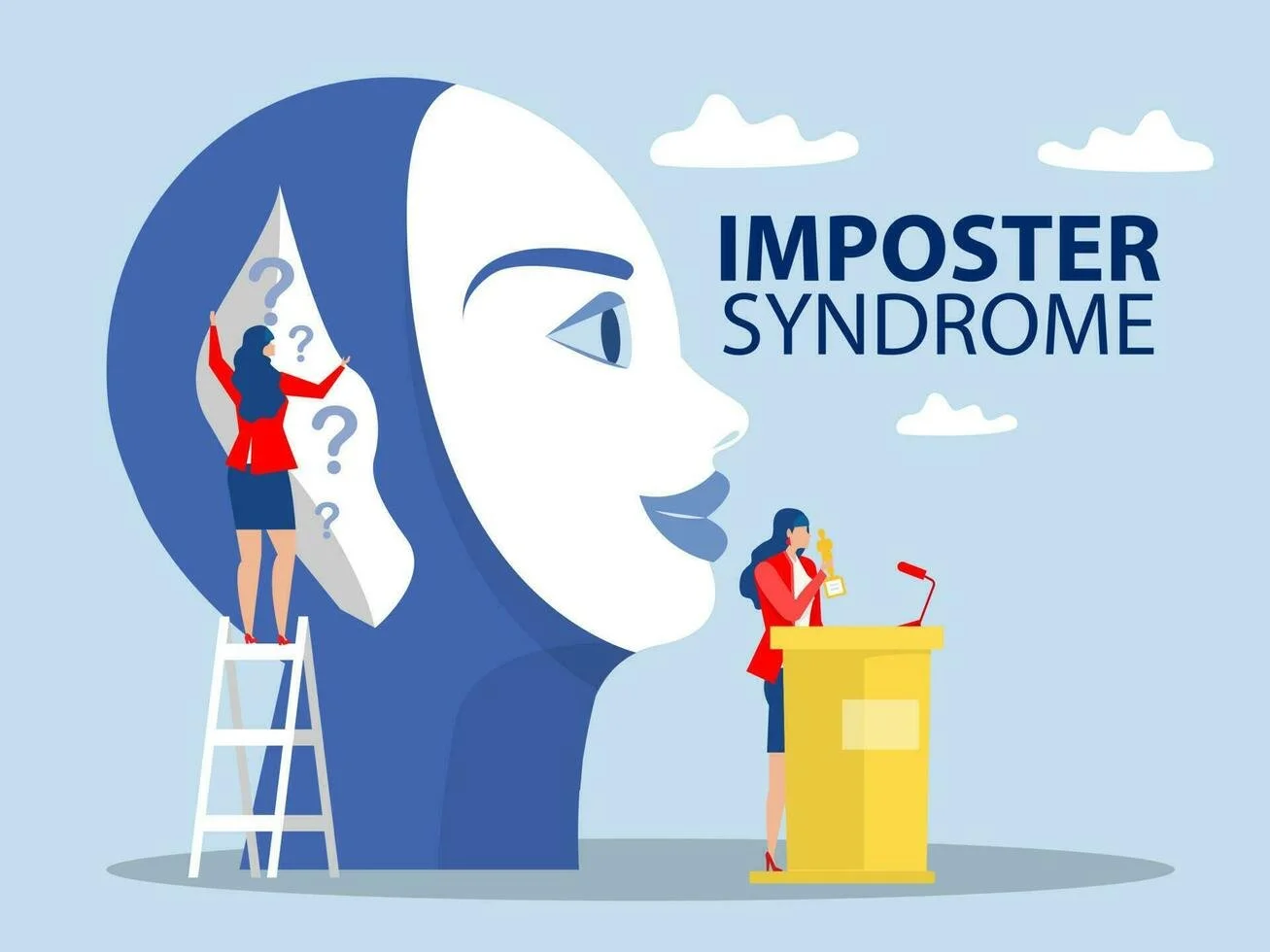5 Effective Strategies for Overcoming Imposter Syndrome for Small Business
It's not uncommon for entrepreneurs like yourself to experience imposter syndrome—a nagging feeling of self-doubt and fear of being exposed as a fraud despite your achievements. We believe that overcoming imposter syndrome is essential for unleashing your true potential and driving your business towards success. In this article, we will share five effective strategies tailored specifically for small business owners to conquer imposter syndrome and regain confidence in their abilities.
Whether you're a seasoned entrepreneur or just starting out, these strategies will help you overcome self-doubt, embrace your strengths, and step into your role as a capable and confident business owner. And as a special offer, we invite you to reach out to us today for a free taster session at Reboot Coaching with our expert coach Marc. Let's dive in and empower you to conquer imposter syndrome once and for all.
Define Imposter Syndrome
"The persistent inability to believe that one's success is deserved or has been legitimately achieved as a result of one's own efforts or skills."
"people suffering from impostor syndrome may be at increased risk of anxiety"
Imposter Syndrome at work/ small business
Imposter syndrome at work is a psychological phenomenon where individuals doubt their accomplishments, skills, and abilities, fearing that they will be exposed as frauds. It often manifests as a persistent belief that one's achievements are due to luck or external factors rather than personal competence. In fact, according to a study by Indeed found that 3 out 5 workers experience imposter syndrome and self doubt.
More studies about imposter syndrome
Imposter syndrome affects individuals in various ways, and recent research sheds light on some interesting trends. In particular, it reveals that women tend to experience imposter syndrome more frequently than men. In fact, the study found that nearly twice as many women (21%) reported suffering from imposter syndrome very frequently or always, compared to men (12%). Additionally, the research highlights that millennials, specifically those aged 25 to 39, are the age group most susceptible to feeling like imposters in the workplace, with a significant 27% experiencing these self-doubts. Conversely, the study indicates that a smaller proportion of workers aged 65 and above, only 3%, regularly grapple with imposter feelings. These findings provide valuable insights into the prevalence of imposter syndrome across different demographics, helping us better understand and address this phenomenon.
You can read more about the study by Indeed called Working on Wellbeing here.
Those experiencing imposter syndrome may discount their qualifications, compare themselves unfavourably to colleagues, and constantly seek validation from others. This self-doubt can undermine confidence, hinder professional growth, and contribute to feelings of stress and anxiety in the workplace. It is important for individuals to recognize imposter syndrome, challenge negative self-perceptions, and embrace their strengths and accomplishments to cultivate a healthier and more positive work environment.
Strategies to overcome imposter syndrome for small business
Imposter syndrome can be a common challenge for small business owners. Here are five effective strategies to help overcome imposter syndrome in the context of running a small business:
Celebrate Your Accomplishments: Take the time to acknowledge and appreciate your achievements. Reflect on your progress, milestones, and positive feedback from clients or customers. Keep a success journal to remind yourself of your skills and accomplishments whenever imposter feelings arise.
Embrace Continuous Learning: Recognize that learning is a lifelong journey, and nobody knows everything. Invest in your personal and professional development by attending workshops, seminars, or online courses. Acquiring new knowledge and skills will boost your confidence and remind you of the value you bring to your business.
Seek Support and Mentorship: Surround yourself with a supportive network of fellow small business owners or mentors who can provide guidance, encouragement, and advice. Share your challenges and experiences with them, and you'll realize that many entrepreneurs face similar struggles. Their perspective and insights can help you gain confidence and overcome imposter syndrome. A good way to find mentorship is a business coach, Reboot Coaching has a free session available here.
Reframe Negative Self-Talk: Pay attention to your self-talk and challenge negative thoughts that fuel imposter syndrome. Replace self-doubt with positive affirmations and remind yourself of your unique strengths and expertise. Practice self-compassion and remind yourself that everyone makes mistakes and experiences setbacks.
Focus on Value and Impact: Shift your mindset from self-doubt to a focus on the value you provide to your clients or customers. Remind yourself of the problems you solve, the solutions you offer, and the positive impact you make in their lives. Regularly collect and review testimonials or success stories from satisfied clients to reinforce your belief in your abilities.
Remember, imposter syndrome is a common experience, and many successful entrepreneurs have dealt with it. By implementing these strategies and nurturing a positive mindset, you can overcome imposter syndrome and confidently navigate the challenges of running a small business




